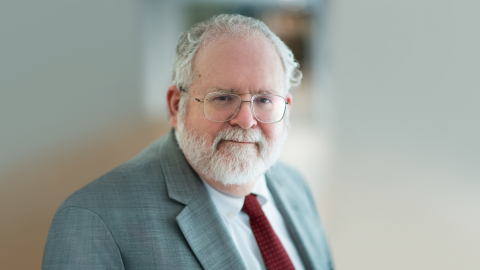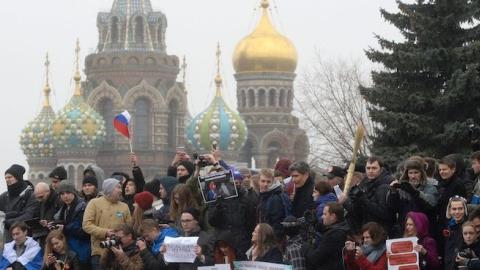The weekend’s impressive protests across Russia have shown that Putinocracy has weak legs. Putin’s Russia is a personalistic regime: Putin is its only program, and the maintenance of power is its only aim.
But such regimes are not necessarily fragile or doomed. Western human rights activists often make the mistake of overestimating the chances that governments they don’t like will fall. In fact, most places through most of human history have been ruled—often very successfully—by regimes whose indifference to liberal norms would give any self-respecting human rights activist a seizure. And contrary to the democratic triumphalists who think that the final victory over injustice is about to happen, it’s likely that everybody now living on earth will die before the last undemocratic regime passes away.
That said, it remains the case that personalistic regimes, however strong they may appear, always have their weak spots. There are two things Putin can’t bring Russia: prosperity and justice. In order to hold the loyalty of the shadowy and powerful figures who surround him, Putin has to let the entourage pillage the economy, and, like Lenin, he must ensure that the “commanding heights” of the economy remain firmly under his control. This means that harsh inequality, inefficient patterns of investment, subservient judges, and nontransparent business organizations are hardwired into the Russian system.
These drawbacks did not appear severe during the first era of Putin’s power. At that time, the public hunger for order was so great that an imperfect order was clearly superior to the chaos threatening Russia in the twilight years of the Yeltsin era. And the return of even a very imperfect order and the rise in oil prices gave Putin the means to improve living standards and led to a dramatic economic turnaround. More recently, however, the inefficiencies of the system have become more expensive, and, thanks to fracking and other advances, oil prices seem unlikely to recover soon. Thanks to European and American policy ineptitude in the last decade, Putin has been able to divert public opinion with a string of impressive foreign policy victories. But the glow is wearing off and the corruption and poverty continue.
The attacks on corruption hit at the regime’s weakest spot: Putin can’t eliminate corruption—the regime depends upon it. And the charge of corruption brings together all the frustrations that ordinary Russians suffer under the regime.
But this weekend’s protests, impressive as they are, are a long way from constituting a lasting threat to Putin’s power. And Putin has options: not only can he exploit Western weakness and stupidity to win victories abroad, from time to time he can throw one of the oligarchs to the wolves. This reminds all the other oligarchs that their wealth and even freedom depend on his favor, and the spectacle of the humiliation of a powerful crook can allow many ordinary Russians to retain their belief that Czar Putin is good, hates corruption and loves the people, but his scheming ministers are thieves who hide the truth from him.
From the standpoint of American foreign policy, these protests don’t ultimately mean much. Putin and Putinocracy remain firmly in charge of Russia, and Russia is a fact with which American foreign policy must deal. The expansion of Russian influence needs to be checked in some places and channeled in others; where realistic agreements can be found that advance the interests of both sides, such agreements should be sought. From an intelligence and domestic security point of view, the efforts of Russian oligarchs and state-backed Russian firms to insert themselves as “normal” actors in Western economies need to be monitored with great care; the foundations of the Western alliance must be strengthened in ways that reduce the danger that Putin will miscalculate and unintentionally provoke a major crisis with NATO or the United States.
If Russia’s government changes, American policy can and should shift to take account of new realities, but changing Russia’s government is not a realistic goal for American foreign policy to embrace, and it is anything but clear that Russia’s next government will be an improvement.
Policymakers need to remember that for most of American history, most of our international relationships have been with nondemocratic and often very unsavory governments. There is very little we can do to change this in most cases; at the moment, a string of failed democracy promotion efforts by the U.S. government have left voters even more skeptical than usual about far reaching American commitments to advance the Bill of Rights worldwide. Again, it is far more likely that American foreign policy will be dealing with powerful, undemocratic states far into the future than that our democracy promotion efforts will turn the whole world into a set of Western-style democracies. We need to get better at dealing with governments we don’t like.














